
Port Loko: The Gateway to Sierra Leone's Cultural Heartland
Nestled in the Northern Province of Sierra Leone, Port Loko offers a unique blend of history, culture, and natural beauty. This charming town serves as a gateway to the rich traditions and vibrant lifestyles of Sierra Leone. With its welcoming community and scenic landscapes, Port Loko is a hidden gem waiting to be explored by intrepid travelers. Port Loko is steeped in history. It was an important trading post during the colonial era and still retains much of its old-world charm. The town's historical sites, including ancient mosques and colonial-era buildings, provide a glimpse into its storied past. Visitors can also learn about the local Temne culture, which is deeply rooted in the region. Nature enthusiasts will find plenty to love in Port Loko. The area is surrounded by lush greenery and picturesque rivers, making it perfect for outdoor activities such as hiking and bird watching. The nearby Bureh Beach offers a serene escape with its pristine sands and clear waters. For those interested in wildlife, the Sierra Leone River Estuary is home to a variety of bird species and marine life, offering exciting opportunities for eco-tourism. Port Loko's vibrant markets are a must-visit for anyone looking to experience local life. Here, you can find everything from fresh produce to handmade crafts, all sold by friendly vendors eager to share their culture. The town is also known for its delicious local cuisine, with dishes like cassava leaves and groundnut stew offering a taste of traditional Sierra Leonean flavors.
Local tips in Port Loko
- Visit the local markets early in the morning for the freshest produce and unique handmade crafts.
- Hire a local guide to explore the historical sites and learn about the rich Temne culture.
- Bring insect repellent for outdoor activities, as the lush surroundings can attract mosquitoes.
- Try the local cuisine at small, family-run restaurants for an authentic taste of Sierra Leone.
- Pack comfortable walking shoes for exploring the town and its natural surroundings.
Port Loko: The Gateway to Sierra Leone's Cultural Heartland
Nestled in the Northern Province of Sierra Leone, Port Loko offers a unique blend of history, culture, and natural beauty. This charming town serves as a gateway to the rich traditions and vibrant lifestyles of Sierra Leone. With its welcoming community and scenic landscapes, Port Loko is a hidden gem waiting to be explored by intrepid travelers. Port Loko is steeped in history. It was an important trading post during the colonial era and still retains much of its old-world charm. The town's historical sites, including ancient mosques and colonial-era buildings, provide a glimpse into its storied past. Visitors can also learn about the local Temne culture, which is deeply rooted in the region. Nature enthusiasts will find plenty to love in Port Loko. The area is surrounded by lush greenery and picturesque rivers, making it perfect for outdoor activities such as hiking and bird watching. The nearby Bureh Beach offers a serene escape with its pristine sands and clear waters. For those interested in wildlife, the Sierra Leone River Estuary is home to a variety of bird species and marine life, offering exciting opportunities for eco-tourism. Port Loko's vibrant markets are a must-visit for anyone looking to experience local life. Here, you can find everything from fresh produce to handmade crafts, all sold by friendly vendors eager to share their culture. The town is also known for its delicious local cuisine, with dishes like cassava leaves and groundnut stew offering a taste of traditional Sierra Leonean flavors.
When is the best time to go to Port Loko?
Iconic landmarks you can’t miss
Tacugama Chimpanzee Sanctuary
Experience the enchanting Tacugama Chimpanzee Sanctuary—an essential refuge for chimpanzees and a hub for wildlife conservation in Freetown.
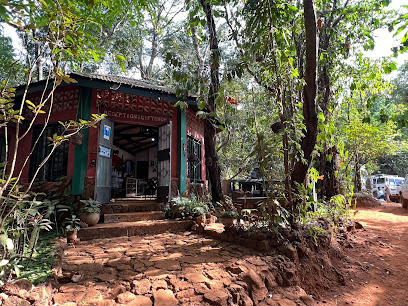
Cotton Tree
Experience the essence of Freetown at Cotton Tree, a historic landmark symbolizing freedom and resilience in Sierra Leone's rich cultural tapestry.
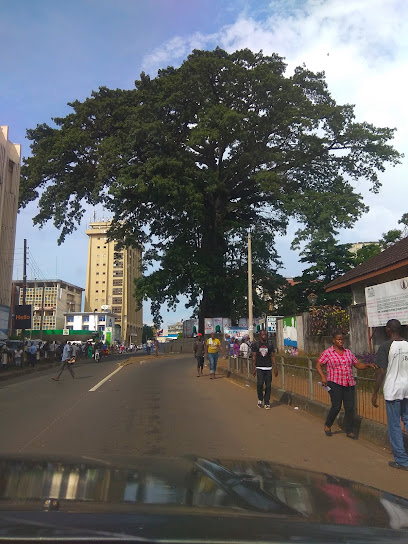
Western Area National Park
Explore the breathtaking beauty and rich biodiversity of Western Area National Park, a must-visit destination for nature lovers in Sierra Leone.
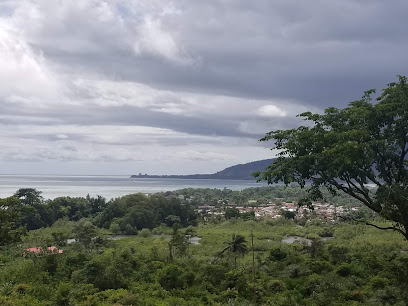
Freetown Amusement Park - Victoria Park
Discover the excitement of Freetown Amusement Park in Victoria Park, where thrilling rides and beautiful scenery await every visitor in this vibrant destination.
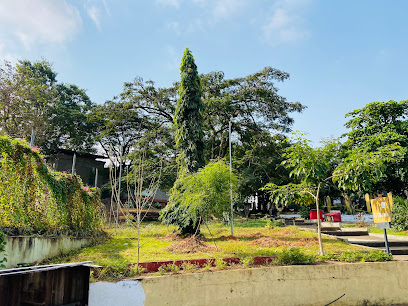
Sierra Leone Peace Museum
Discover the Sierra Leone Peace Museum, a profound journey through the nation's history of conflict and resilience, showcasing the hope and strength of its people.
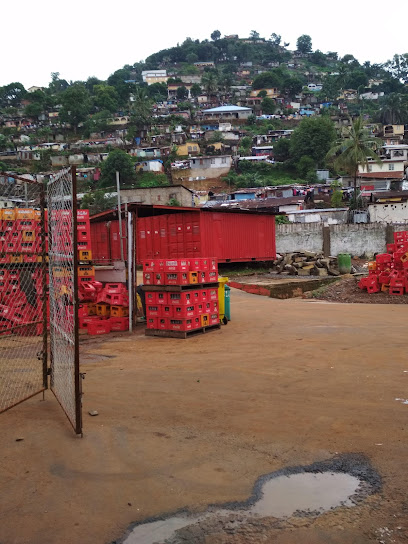
River No beach
Discover the serene beauty of River No Beach in Sussex, a perfect retreat for nature lovers and those seeking tranquility amidst picturesque landscapes.
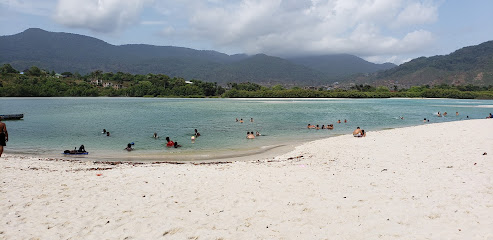
Eastern Police Clock Tower
Explore Freetown's Eastern Police Clock Tower, a captivating historical landmark that reflects the city's rich heritage and vibrant culture.
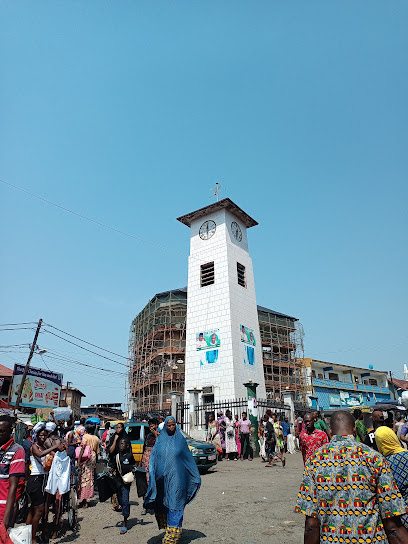
National Railway Museum
Explore Sierra Leone's railway history at the National Railway Museum, showcasing vintage trains and interactive exhibits in Freetown.
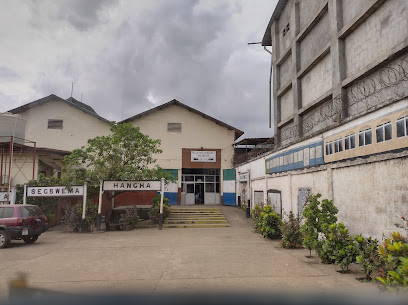
Aberdeen Lighthouse
Experience the breathtaking views and historical significance of Aberdeen Lighthouse, a must-visit attraction on Sierra Leone's stunning coastline.
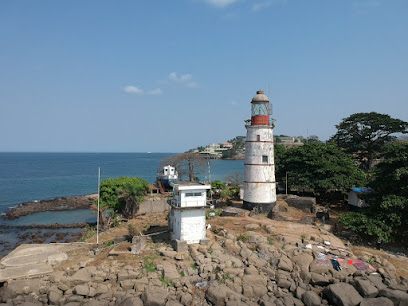
Old Fourah Bay College
Explore the historical significance of Old Fourah Bay College, the oldest university in West Africa, in the heart of Freetown, Sierra Leone.
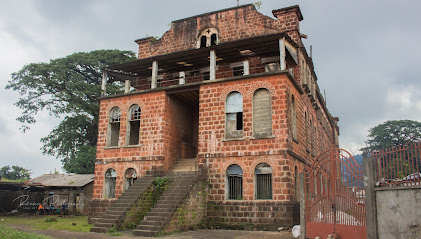
India temple Wilkinson Road
Discover the serene India Temple in Freetown, a vibrant blend of spirituality and culture, offering a unique glimpse into Indian traditions.
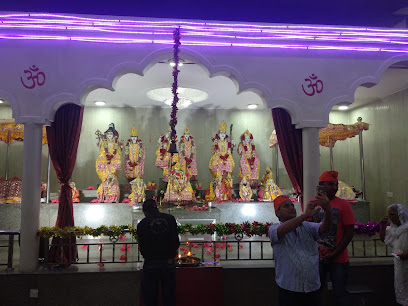
Mambo Waterfalls
Experience the breathtaking beauty of Mambo Waterfalls in Freetown, Sierra Leone - a perfect destination for nature lovers and hiking enthusiasts.
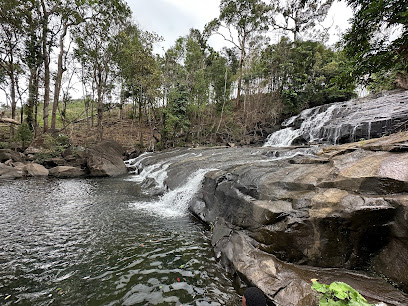
Sugarland Beach
Experience the beauty and adventure of Sugarland Beach in Freetown, a perfect blend of relaxation, water sports, and local culture.
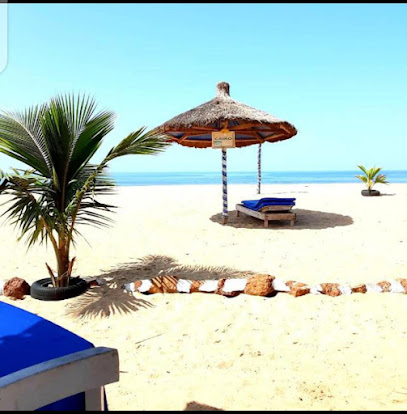
RCCG Mount of Olives Freetown
Discover the vibrant spiritual community at RCCG Mount of Olives in Freetown, a serene Pentecostal church welcoming all visitors.
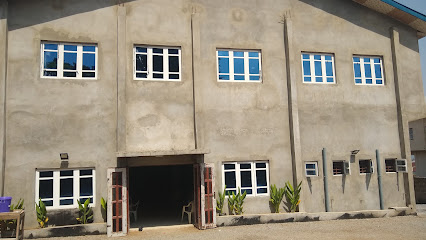
St. John's Maroon Church
Explore the rich heritage and architectural beauty of St. John's Maroon Church, a must-visit tourist attraction in Freetown, Sierra Leone.
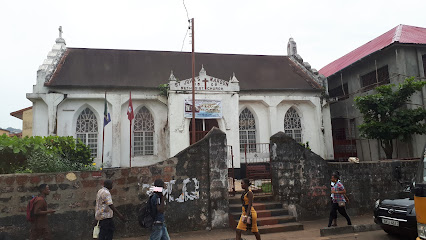
Unmissable attractions to see
Tacugama Chimpanzee Sanctuary
Experience the wonders of wildlife conservation at Tacugama Chimpanzee Sanctuary in Freetown, Sierra Leone, a haven for rescued chimpanzees.
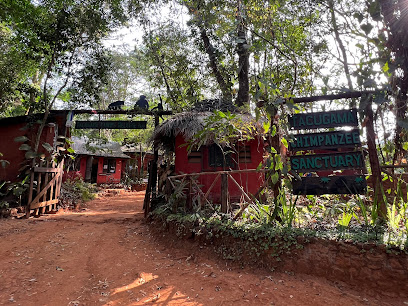
Freetown Amusement Park - Victoria Park
Explore adventure and fun at Freetown Amusement Park in Victoria Park, a family-friendly destination perfect for thrill-seekers and relaxation.
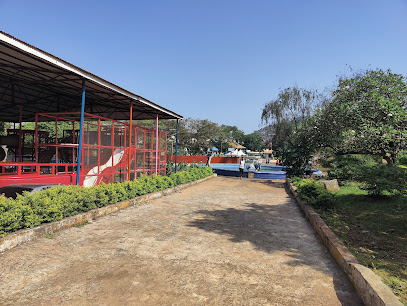
Eastern Police Clock Tower
Explore the Eastern Police Clock Tower, a historical gem in Freetown showcasing Sierra Leone's rich colonial heritage and architectural beauty.

National Railway Museum
Discover Sierra Leone’s railway heritage at the National Railway Museum, where history and adventure meet in Freetown’s fascinating exhibits.
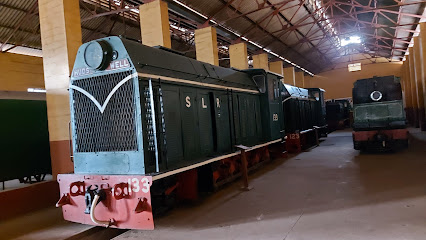
Old Fourah Bay College
Explore Old Fourah Bay College, the first university in West Africa, celebrating Sierra Leone's educational heritage and architectural beauty.
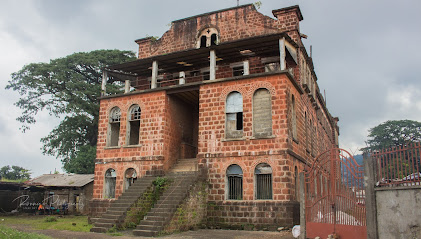
Aberdeen beach
Discover the serene beauty of Aberdeen Beach, a coastal gem in Freetown, perfect for relaxation, adventure, and experiencing local culture.
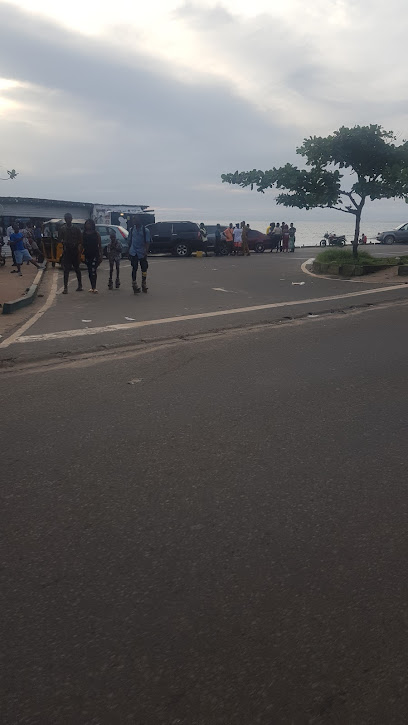
Tower Hill Central Mosque
Experience the serene ambiance and architectural beauty of Tower Hill Central Mosque, a cultural gem in the heart of Freetown, Sierra Leone.
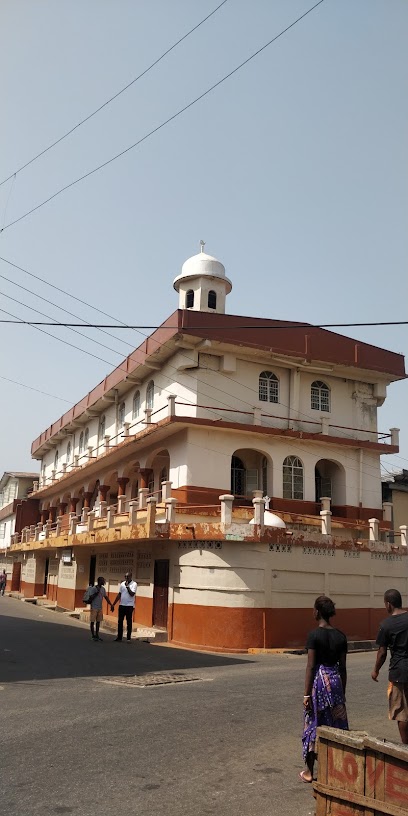
Lumley Beach Round About
Experience the enchanting Lumley Beach Round About, a vibrant park in Freetown offering stunning coastal views and a taste of local culture.
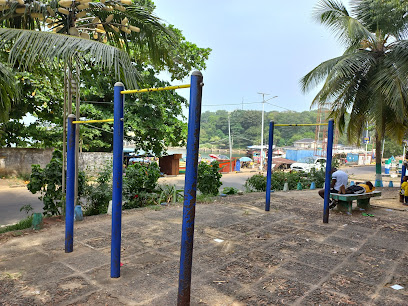
Baw Baw Beach
Discover the tranquility of Baw Baw Beach, a stunning coastal park in Sussex ideal for relaxation and outdoor adventures.
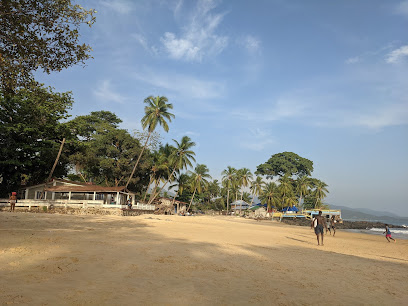
Sierra Leone Peace & Culture Monument
Experience the heart of Sierra Leone at the Peace & Culture Monument, where history, resilience, and beauty converge in Freetown's serene park.
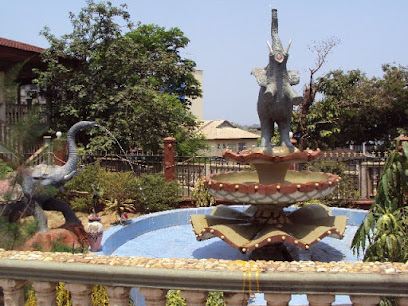
Resevoir
Experience the natural beauty and tranquility of Resevoir, a must-visit tourist attraction in Freetown offering stunning views and peaceful surroundings.
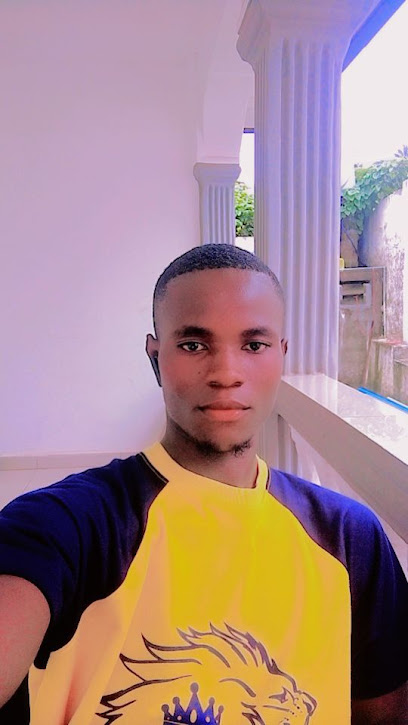
Bureh Secret Beach
Experience the tranquil beauty of Bureh Secret Beach in Sierra Leone, a hidden paradise perfect for relaxation and local culture.
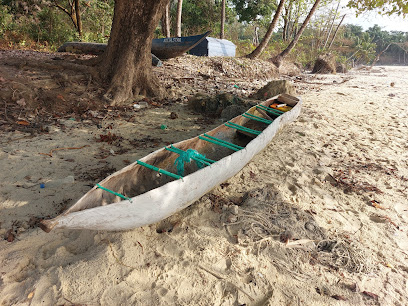
Babel Entertainment Center
Experience the vibrant atmosphere of Babel Entertainment Center in Kebbie Town, where fun meets local culture for an unforgettable adventure.
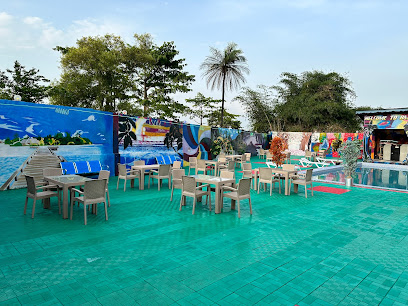
MID EAST HUNTERS
Explore Mid East Hunters in Freetown, a captivating tourist attraction that immerses you in Sierra Leone's rich culture and traditions.

Kilimi National Park
Experience the stunning landscapes and rich biodiversity at Kilimi National Park, a hidden paradise in Sierra Leone for nature lovers and adventure seekers.
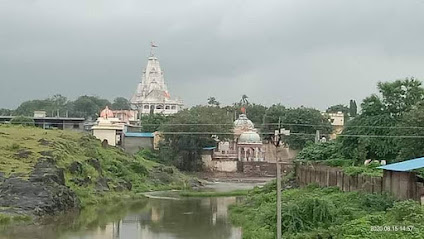
Essential places to dine
Papaya Restaurant
Experience authentic Sierra Leonean cuisine at Papaya Restaurant in Freetown – where local flavors meet global tastes.
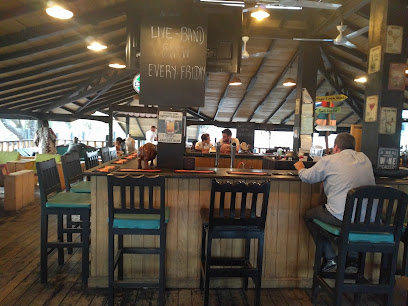
Olba Restaurant
Experience authentic Mediterranean cuisine with breathtaking views at Olba Restaurant on Lumley Beach in Freetown.
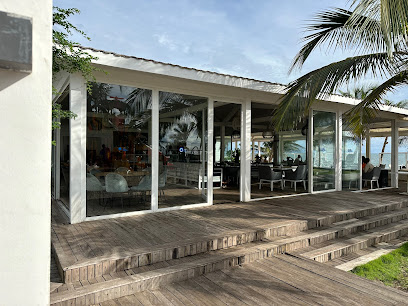
LOR Resturant
Experience authentic Sierra Leonean cuisine at LOR Restaurant in Freetown - where local flavors meet warm hospitality.
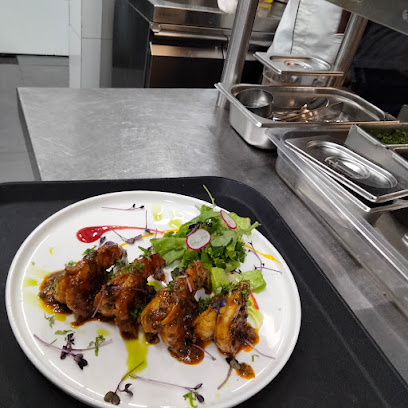
Mango Peak
Discover Mango Peak: A Barbecue Paradise in Freetown Offering Delectable Grilled Delicacies and Unforgettable Dining Experiences.
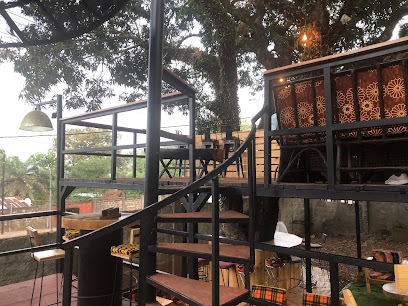
Lovetta's Kitchen Sport Bar And Restaurant
Discover the vibrant flavors of Sierra Leone at Lovetta's Kitchen Sport Bar And Restaurant - where local culture meets delicious cuisine.
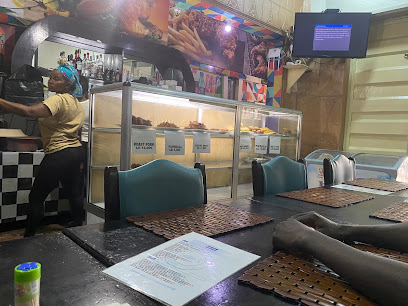
Agenkwa Ghanaian Restaurant
Experience authentic Ghanaian cuisine at Agenkwa Restaurant in Freetown – where every dish tells a story and flavors come alive.
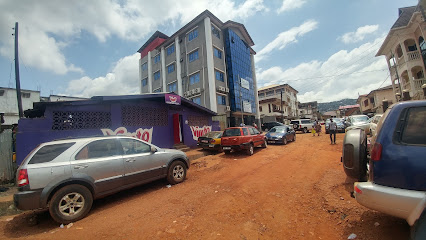
Amaala's Delight
Experience the flavors of Sierra Leone at Amaala's Delight – where local meets international cuisine in an inviting atmosphere.
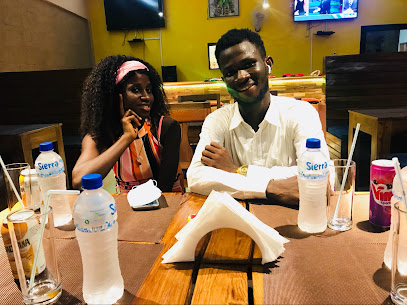
Lily's Restaurant & cafe
Experience local flavors at Lily's Restaurant & Cafe on Lumley Beach Road – where good food meets great vibes in Freetown.
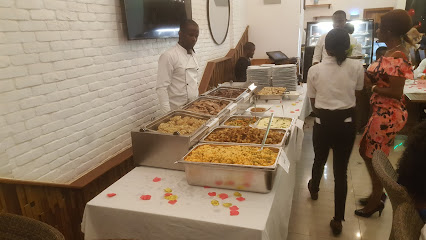
Leo Restaurant & Cafe
Discover fine dining at Leo Restaurant & Cafe on Lumley Beach - where exquisite cuisine meets breathtaking ocean views.
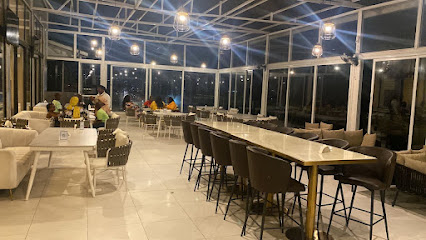
Aista's Restaurant & Cafe
Discover the culinary delights of Sierra Leone at Aista's Restaurant & Cafe in Freetown - where local flavors meet international cuisine.
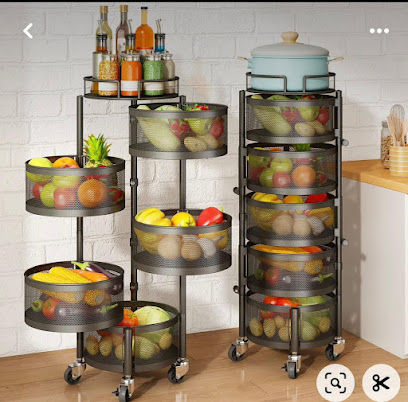
La Paz Restaurant
Discover authentic local cuisine at La Paz Restaurant - where every dish tells a story and every meal is an experience.
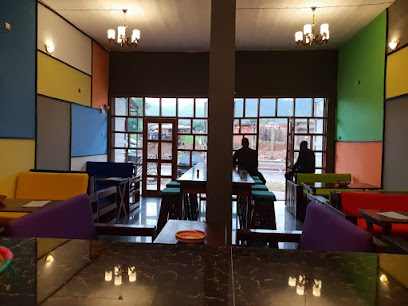
Home Food Restaurant
Experience authentic Sierra Leonean cuisine at Home Food Restaurant in Freetown - where tradition meets flavor by the beach.
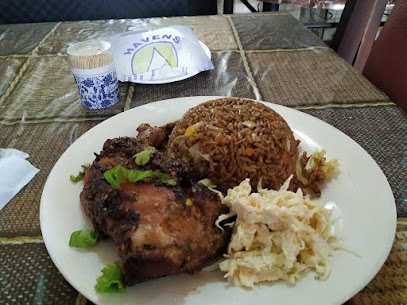
Express coffee shop and bar
Discover the perfect blend of comfort and flavor at Express Coffee Shop and Bar inside Lungi International Airport.
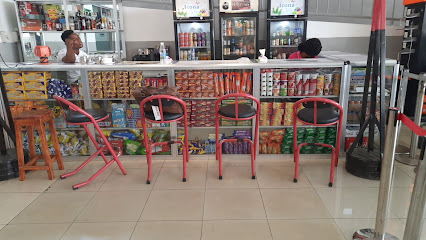
DeVillage Beach Bar & Restaurant
Experience vibrant flavors at DeVillage Beach Bar & Restaurant on Lumley Beach – where delicious food meets stunning ocean views.
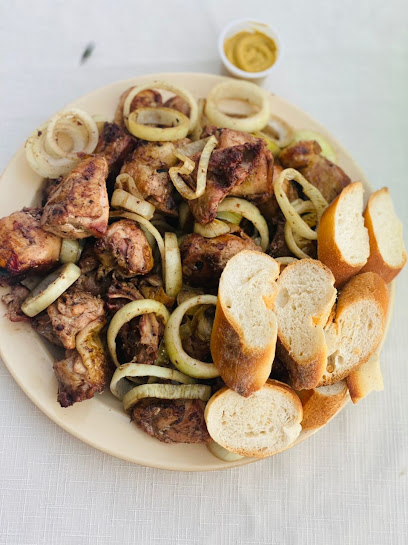
Home Restaurant and Bar
Experience authentic Sierra Leonean cuisine at Home Restaurant and Bar in Freetown - where flavors meet warm hospitality.
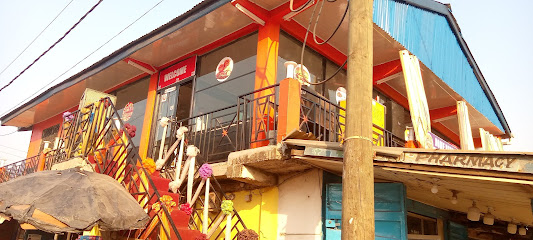
Markets, malls and hidden boutiques
MARKS CLOTHING
Discover Freetown's fashion scene at Marks Clothing, where local culture meets contemporary style in a vibrant shopping experience.
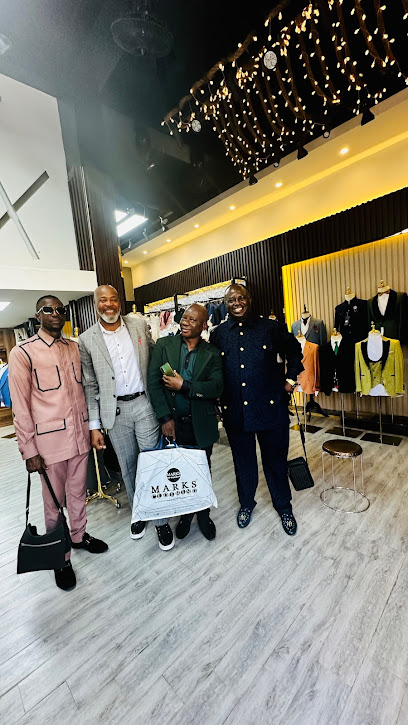
Sinko store
Discover local culture and unique finds at Sinko Store, a lively shopping mall in Freetown that brings together fashion, food, and community.
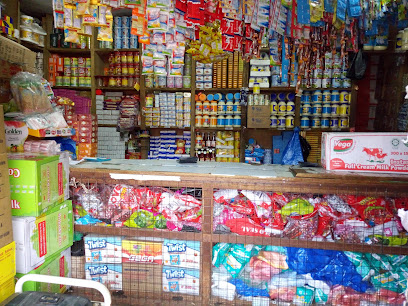
Gift Box by Wendy
Explore the vibrant culture of Sierra Leone at Gift Box by Wendy, where unique handcrafted gifts await every visitor.
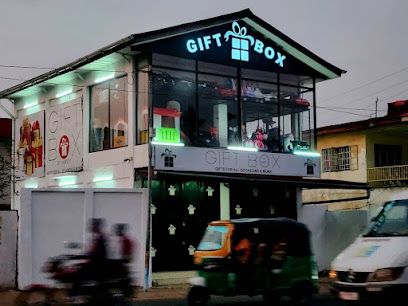
Hawawa Boutique Freetown SL
Explore the unique offerings at Hawawa Boutique, a treasure trove of local craftsmanship and Sierra Leonean culture in the heart of Freetown.

Blush Freetown
Explore Blush Freetown: A treasure trove of unique gifts and beauty products reflecting the vibrant culture of Sierra Leone.
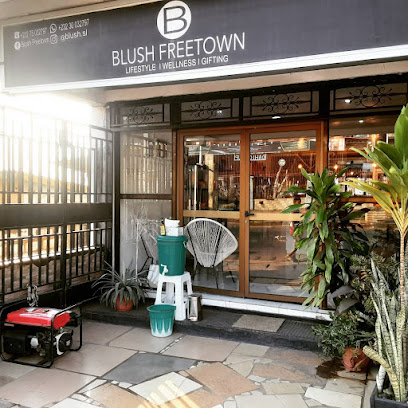
Afrique Interbiz & General Merchandise
Explore the heart of Freetown at Afrique Interbiz, your one-stop shop for authentic Sierra Leonean goods and local treasures.
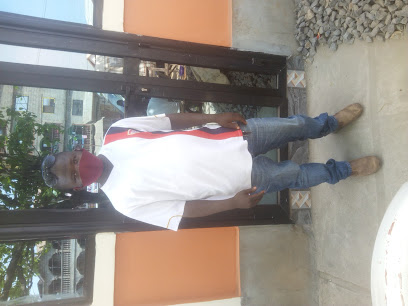
Vitafoam SL Outlet Port Loko
Experience exceptional comfort and quality at Vitafoam SL Outlet in Port Loko, your go-to destination for premium mattresses.
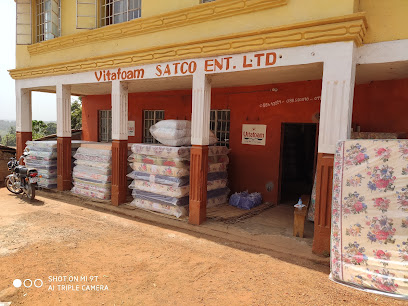
Value Added Service Multimedia
Discover the creative spirit of Port Loko at Value Added Service Multimedia, where your memories come to life through vibrant prints and local artistry.
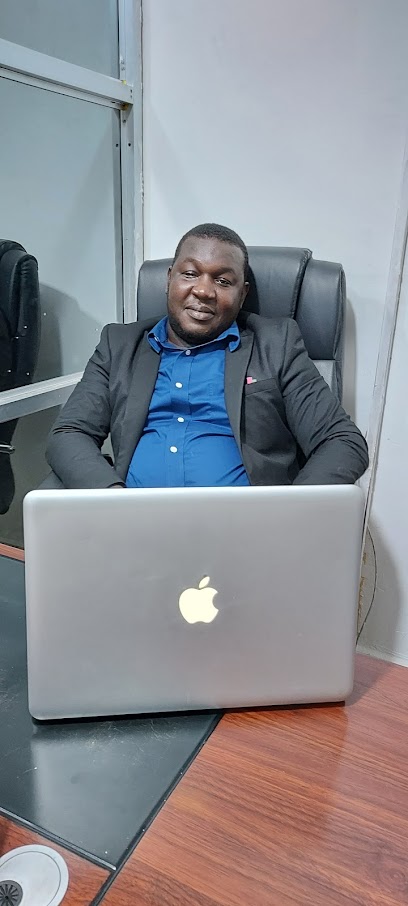
Gifts and More
Explore Gifts and More in Freetown for unique souvenirs and authentic gifts that celebrate the vibrant culture of Sierra Leone.
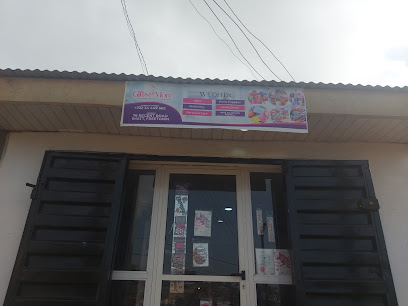
BIG DROP 2 SISTER'S BOUTIQUE
Explore BIG DROP 2 SISTER'S BOUTIQUE for authentic Sierra Leonean crafts and fashion in the heart of Freetown, a true representation of local artistry.

MINITITI LUMLEY
Explore the vibrant fashion accessories of Sierra Leone at Minititi Lumley, a treasure trove of local craftsmanship and unique styles.
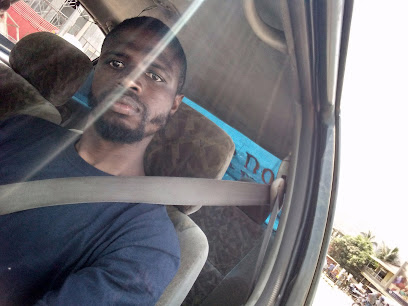
T-HOME BOY ENTERPRISE
Explore T-HOME BOY ENTERPRISE in Freetown for unique local products and a genuine Sierra Leonean shopping experience.

Sierra luuma online shop
Discover Sierra Luuma in Freetown for the latest smartphones and accessories, ensuring you stay connected while exploring Sierra Leone.
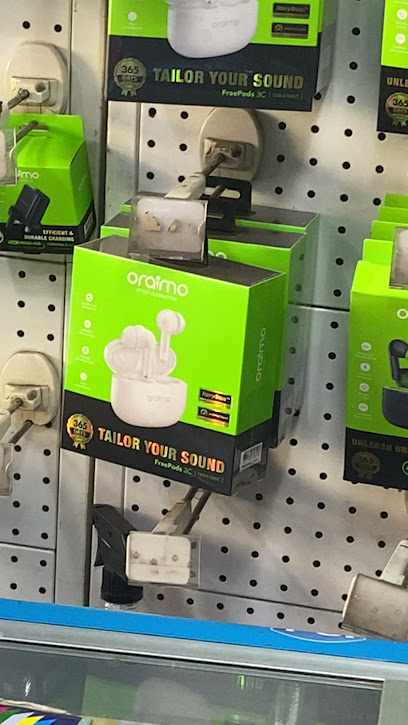
Port Loko
Explore Port Loko, Sierra Leone - a vibrant hub for unique home goods and rich cultural experiences.
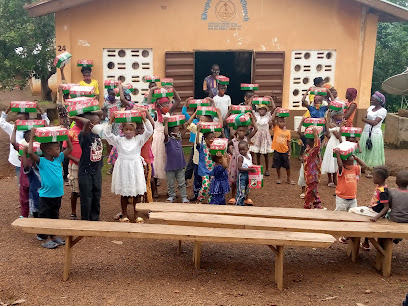
God’s Will Enterprise
Explore the vibrant offerings of God’s Will Enterprise, a local general store in Port Loko, showcasing the essence of Sierra Leonean culture.

Essential bars & hidden hideouts
Roof Garden Bar & Restaurant
Experience breathtaking views and exquisite dining at Freetown's Roof Garden Bar & Restaurant, the perfect blend of ambiance and flavor.
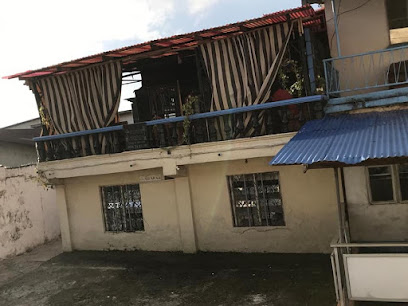
LOR Resturant
Discover the vibrant flavors of Sierra Leone at LOR Restaurant, Freetown's culinary gem offering a delightful dining experience.
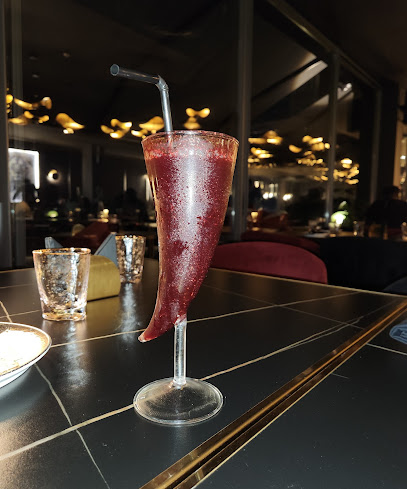
The Warehouse
Experience the vibrant nightlife of Freetown at The Warehouse, a lively bar and night club on Lumley Beach Road, perfect for dancing and socializing.
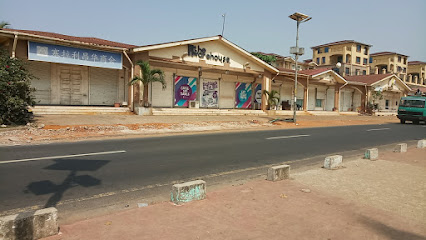
Leone sky bar
Experience breathtaking views and vibrant nightlife at Leone Sky Bar, Freetown's premier rooftop destination for cocktails and local cuisine.
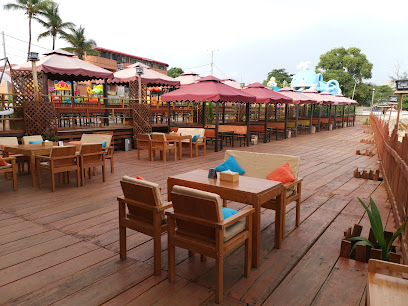
Eddies Bar and Grill
Experience the vibrant flavors and lively atmosphere at Eddie's Bar and Grill in Freetown, a top destination for grilled delights and refreshing drinks.
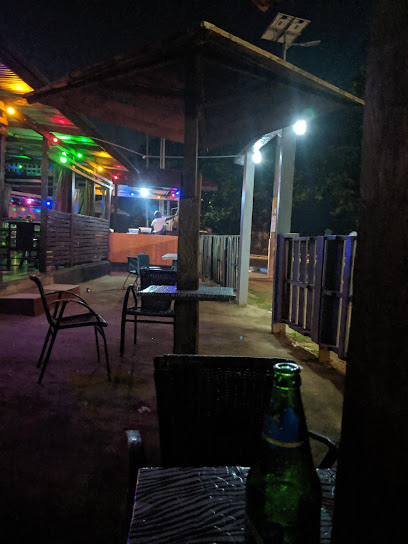
KOLOLI Bar & Restaurant
Discover the flavors of Sierra Leone at KOLOLI Bar & Restaurant, a vibrant dining spot near Lumley Beach with delicious cuisine and refreshing drinks.
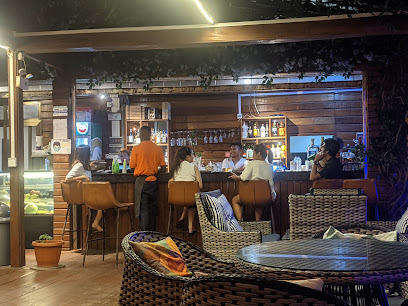
The View Hotel, Restaurant & Sky Lounge
Experience breathtaking views and exquisite West African cuisine at The View Hotel, Restaurant & Sky Lounge in Freetown, Sierra Leone.
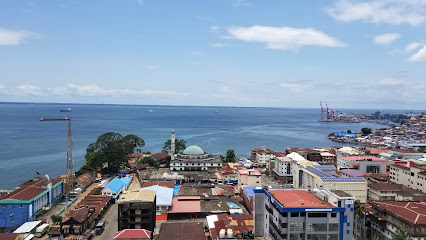
Mamz Beach Bar
Discover the vibrant atmosphere of Mamz Beach Bar in Freetown, where relaxation meets tropical flavors and lively entertainment.
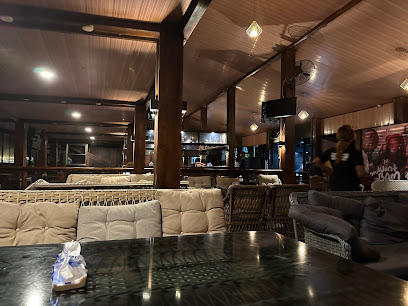
DeVillage Beach Bar & Restaurant
Experience the vibrant flavors and breathtaking ocean views at DeVillage Beach Bar & Restaurant in Freetown, a perfect blend of relaxation and culinary delight.
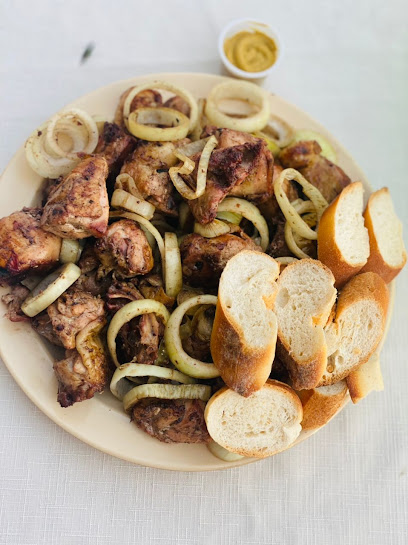
DeCode Lounge
Experience the vibrant nightlife of Freetown at DeCode Lounge, where music, dance, and stunning beach views come together for an unforgettable night.
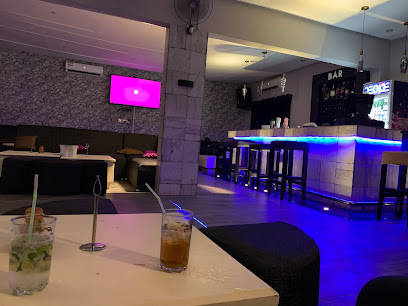
Jomat Bar N Lounge
Discover the vibrant atmosphere of Jomat Bar N Lounge in Freetown, offering delicious grilled cuisine and a lively nightlife experience.
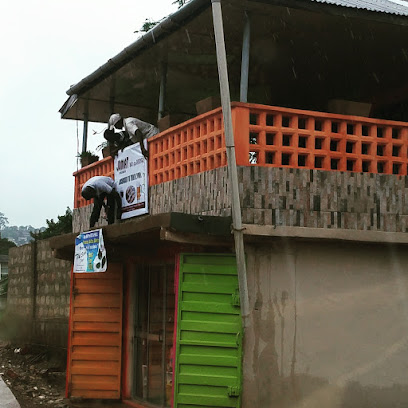
Accra Restaurant Lounge SL
Experience the vibrant culinary scene at Accra Restaurant Lounge SL in Freetown, where local flavors meet international cuisine in a lively atmosphere.
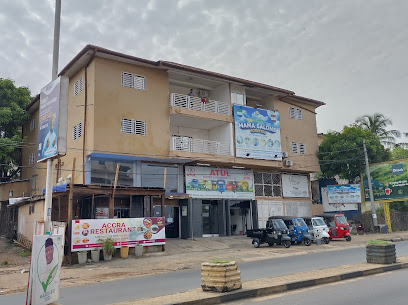
Q BAR
Discover the vibrant nightlife of Freetown at Q BAR, where refreshing drinks meet a lively atmosphere along Lumley Beach.
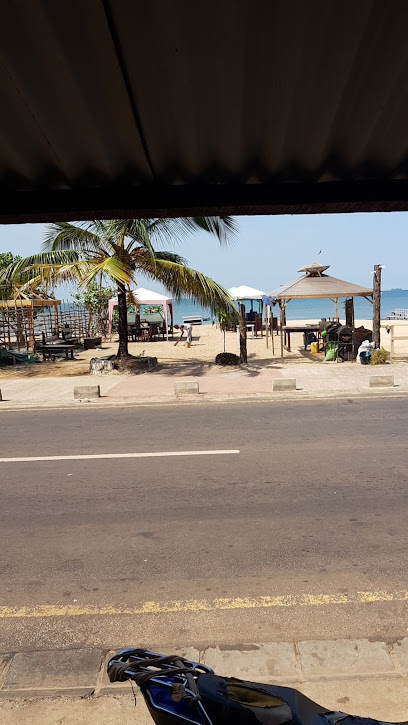
Vanity
Experience the vibrant nightlife at Vanity, Freetown's chic lounge offering exquisite drinks and a lively atmosphere for an unforgettable evening.

Local Phrases
-
- HelloSannu
[san-nu] - GoodbyeA di ya
[ah dee yah] - YesEh
[eh] - NoLeh
[leh] - Please/You're welcomeKushe
[koo-she] - Thank youTenki
[ten-kee] - Excuse me/SorrySorri
[sor-ree] - How are you?How dey you?
[how dey yoo] - Fine. And you?Fine. You?
[fine. yoo] - Do you speak English?Yu sabi tok Inglish?
[yoo sah-bee tock in-gleesh] - I don't understandAh no sabi
[ah no sah-bee]
- HelloSannu
-
- I'd like to see the menu, pleaseAh go lek si di menu, abeg
[ah go lek see dee menu, ah-beg] - I don't eat meatAh no dey eat mɔt
[ah no dey eat moht] - Cheers!Cheers!
[cheers] - I would like to pay, pleaseAh go lek pay, abeg
[ah go lek pay, ah-beg]
- I'd like to see the menu, pleaseAh go lek si di menu, abeg
-
- Help!Eba!
[eh-bah] - Go away!Nor to!
[nor toh] - Call the Police!Kol Polis!
[kohl poh-lees] - Call a doctor!Kol dokita!
[kohl doh-kee-tah] - I'm lostAh loss
[ah loss] - I'm illAh sik
[ah seek]
- Help!Eba!
-
- I'd like to buy...Ah go lek ba...
[ah go lek bah] - I'm just lookingAh du am jus lek
[ah doo am jus lek] - How much is it?Na ow much?
[nah ow much] - That's too expensiveDa wan too much
[dah wahn too much] - Can you lower the price?Yu fit low di prais?
[yoo fit low dee price]
- I'd like to buy...Ah go lek ba...
-
- What time is it?Na ow clok dis?
[nah ow clok dees] - It's one o'clockNa wan clok
[nah wahn clok] - Half past (10)Half pas tin
[half pahs teen] - MorningMɔnin
[mo-neen] - AfternoonAftanun
[af-tah-noon] - EveningIvinin
[ee-vee-neen] - YesterdayYestide
[yes-teed] - TodayTide
[teed] - TomorrowTamoro
[tah-moh-roh] - 1Wan
[wahn] - 2Tu
[too] - 3Tri
[tree] - 4Fɔ
[foh] - 5Fayf
[fayf] - 6Seks
[seks] - 7Sɛven
[sev-en] - 8Eit
[ate] - 9Nain
[nine] - 10Ten
[ten]
- What time is it?Na ow clok dis?
-
- Where's a/the...?Wan de...?
[wahn deh] - What's the address?Na wɛtɔ de?
[nah way-toh deh] - Can you show me (on the map)?Yu fit show mi?
[yoo fit show mee] - When's the next (bus)?Wen di nɛks wan de?
[wen dee necks wahn deh] - A ticket (to ....)Wan tikit (gɛt...)
[wahn ticket (get...)]
- Where's a/the...?Wan de...?
History of Port Loko
-
Port Loko, one of Sierra Leone's oldest towns, was established by the Loko tribe, one of the indigenous ethnic groups in the region. The Loko people, known for their adept skills in fishing and agriculture, settled in the area due to its fertile lands and access to the Sierra Leone River, which provided a vital waterway for trade and sustenance.
-
During the 16th and 17th centuries, Port Loko became a significant trading post for European colonial powers. The Portuguese, followed by the British, utilized the town's strategic location for the transatlantic slave trade. The town's riverside setting made it an ideal point for the shipment of enslaved Africans to the Americas. This dark period in Port Loko's history left a lasting impact on its cultural and social fabric.
-
Islam was introduced to Port Loko in the 18th century through trade and the migration of Muslim Fulani and Mandingo people. The town became a center for Islamic scholarship and learning, with several mosques and Quranic schools established. This religious shift significantly influenced the cultural and social structure of Port Loko, which remains predominantly Muslim to this day.
-
In the late 19th century, Port Loko came under British colonial administration as part of the Sierra Leone Protectorate. The British built infrastructure, including roads and administrative buildings, which facilitated better control and exploitation of the area's resources. This era also saw the introduction of Western education and legal systems, which coexisted with traditional practices.
-
Sierra Leone gained independence from Britain in 1961, and Port Loko played a crucial role in the newly independent nation. The town continued to develop, with improvements in education, healthcare, and infrastructure. However, this period was also marked by political instability and economic challenges.
-
The Sierra Leone Civil War (1991-2002) had a profound impact on Port Loko. The town experienced significant violence and displacement, with many residents fleeing to safer areas. Post-war, Port Loko has been a focus of reconstruction and reconciliation efforts. The scars of the conflict are still visible, but the town has shown resilience and determination in rebuilding.
-
Port Loko boasts a rich cultural heritage, with vibrant traditions in music, dance, and festivals. The town is known for its traditional Loko music and dance, which are integral to ceremonies and celebrations. The annual Ramadan and Eid festivals are major events, reflecting the town's Islamic heritage. Additionally, local crafts, including weaving and pottery, are vital aspects of Port Loko's cultural identity.
-
In recent years, Port Loko has seen significant development efforts aimed at improving living standards and economic opportunities. The construction of new schools, healthcare facilities, and roads has enhanced the quality of life for residents. The town's strategic position continues to make it an important hub for trade and commerce in Sierra Leone, with potential for future growth and prosperity.
Port Loko Essentials
-
Port Loko can be accessed primarily by road. The nearest major city with an international airport is Freetown, the capital of Sierra Leone. Lungi International Airport (FNA) serves as the main gateway into the country. From Freetown, you can take a bus, shared taxi, or private car to Port Loko, which is approximately a 2-hour drive. There are also local ferries available that connect various parts of the country, though they may not be the most convenient option for reaching Port Loko.
-
Port Loko is a relatively small town, and many places can be reached on foot. For longer distances, motorbike taxis, known locally as 'okadas', are a popular and affordable mode of transport. Shared taxis and minibuses are also available and can take you to nearby towns and villages. Renting a car is an option, but driving conditions can be challenging due to the state of the roads and local driving habits.
-
The official currency in Sierra Leone is the Leone (SLL). It's advisable to carry cash, as credit card acceptance is limited, especially in smaller establishments. ATMs are available but can be unreliable, so ensure you have enough cash for your stay. Currency can be exchanged at banks and official exchange bureaus, but avoid street money changers due to the risk of counterfeit notes.
-
Port Loko is generally safe for tourists, but like any destination, it is important to remain vigilant. Avoid walking alone at night and keep an eye on your belongings in crowded areas. Some areas may have higher crime rates, so it’s best to seek local advice on which neighborhoods to avoid. Petty theft can occur, so use common travel safety practices such as not displaying valuables openly.
-
In case of an emergency, dial 117 for the police or 999 for medical emergencies. There are local clinics and a hospital in Port Loko for medical assistance. It is highly recommended to have travel insurance that covers medical emergencies and evacuation. For minor health issues, pharmacies are available where you can purchase over-the-counter medications.
-
Fashion: Do dress modestly; lightweight, long-sleeved clothing is recommended to protect against mosquitoes. Avoid wearing flashy jewelry. Religion: Do respect local customs and religious practices. It’s polite to ask before taking photos in or around religious sites. Public Transport: Do negotiate the fare before starting your journey on 'okadas' or taxis. Don't be surprised if shared transportation is crowded. Greetings: Do greet people with a handshake and a smile. It's customary to use titles and formal greetings. Eating & Drinking: Do try local dishes such as 'rice and plasas'. Don't refuse food offerings, as it can be considered impolite.
-
To experience Port Loko like a local, visit the weekly markets where you can buy fresh produce and local crafts. Engage with the locals; they are often friendly and eager to share stories about their culture and history. Don’t miss exploring the historic sites such as the old colonial buildings and the impressive Port Loko Fort. For a unique culinary experience, try the street food and local dishes.
Trending Landmark in Port Loko
-
Tacugama Chimpanzee Sanctuary
-
Cotton Tree
-
Western Area National Park
-
Freetown Amusement Park - Victoria Park
-
Sierra Leone Peace Museum
-
River No beach
-
Eastern Police Clock Tower
-
National Railway Museum
-
Aberdeen Lighthouse
-
Old Fourah Bay College
-
India temple Wilkinson Road
-
Mambo Waterfalls
-
Sugarland Beach
-
RCCG Mount of Olives Freetown
-
St. John's Maroon Church
Nearby Cities to Port Loko
-
Things To Do in Magburaka
-
Things To Do in Conakry
-
Things To Do in Bonthe
-
Things To Do in Pujehun
-
Things To Do in Kenema
-
Things To Do in Faranah
-
Things To Do in Voinjama
-
Things To Do in Monrovia
-
Things To Do in Kakata
-
Things To Do in Quebo
-
Things To Do in Buba
-
Things To Do in Gbarnga
-
Things To Do in Buchanan
-
Things To Do in Ganta
-
Things To Do in Bissau







